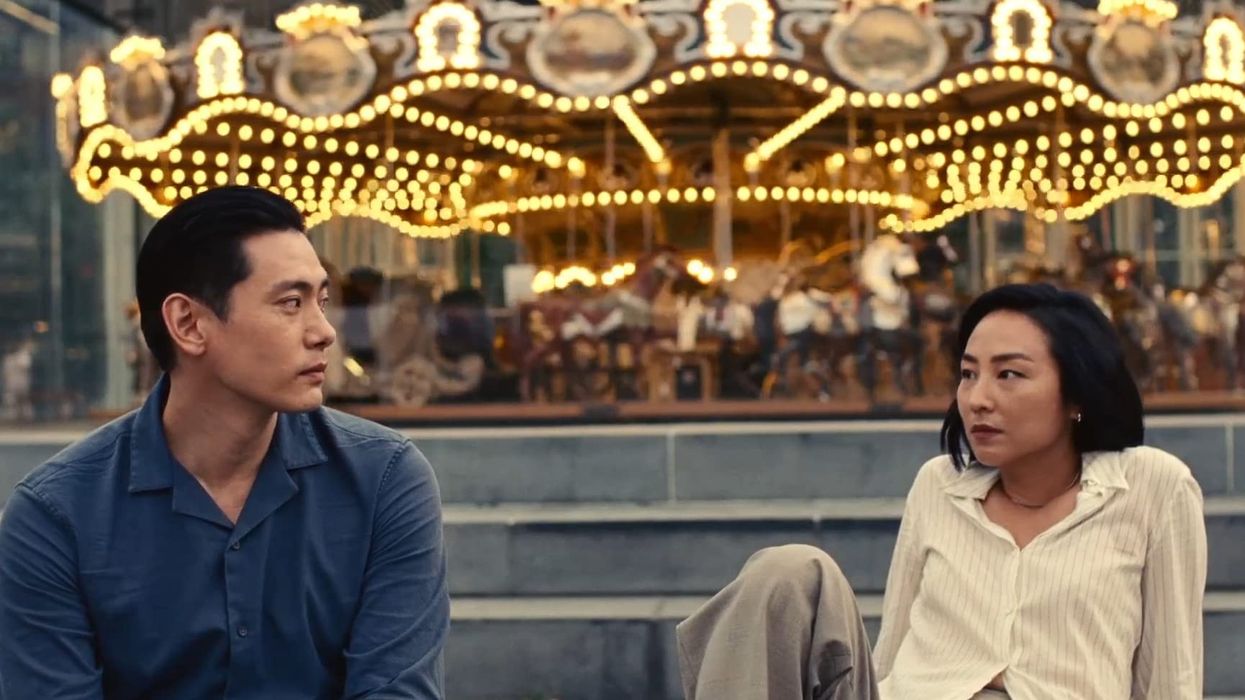How ‘Past Lives’ Creates Intimacy Through the Long Takes
You don't need a close-up to showcase the emotional rollercoaster of a relationship.

There is a strange delightful feeling I had while watching rookie filmmaker Celine Song’s Past Lives. When I wasn’t crying or feeling second-hand jealousy of Nora’s (Great Lee) husband, Arthur (John Magaro), I wanted to sit with the longing between Nora and Hae Sung (Teo Yoo).
Past Lives is a film that contemplates love and destiny between Nora and Hae Sung, two deeply connected childhood friends who were torn apart after Nora’s family emigrates from South Korea. After a short fling in their 20s, Hae Sung goes to New York to visit Nora for a weekend.
There are many fantastic elements about this story and Song’s strong visual language, but I can’t stop thinking about how Song creates intimacy throughout the film. Rather than taking the Normal People approach to intimacy, Song sits in that feeling by never cutting away from wide shots of Nora and Hae Sung together.
Let’s break down the final tracking long take, also known as a oner, of Past Lives, Song’s intentions, and what I took away from this shot.
The Final Long Take in Past Lives
In the final long shots of the movie, the camera follows Nora and Hae Sung as they walk along a Village street in New York City. They say goodbye. He grabs an Uber. Then, she walks back to her apartment, where her husband Arthur sits on the stoop. The six minutes and 26 seconds put you through a wave of emotions that are equal parts painful and hopeful.
This was a vital scene for Song. In an interview with IndieWire, Song says, “I remember when we were location scouting, and we found this street. I remember telling everybody in my crew, ‘So this scene is the hill that we’re all going to die on. So we’re going to have to figure out how to do this in a way that we’re going to put everything we have against it because if this doesn’t work, none of the movie works.”
In this final shot, Nora reaches up at one point to touch Hae Sung, to tell him how she really feels but pulls away just as a car pulls into the frame and breaks the tension that built during their short walk down the sidewalk. As an audience member, the pull of Nora’s hand worsens the heartache as the tension builds and you silently beg for one of the characters to notice the other and do something, anything.

As an audience member, you want that tension to break. You’re waiting for that moment when something happens. When something does happen, it is typically not the longing touch we want or the eye contact that brings these two characters back together every 12 to 15 years. Instead, it is a car pulling into the frame to take Hae Sung back to the airport and let Nora go back to her typical American life.
There is an awkwardness, an uneasiness, and an honest look at a complicated relationship that Song is navigating through her work. In the opening shot of the film, we are looking through the eyes of another couple at the bar watching Nora, Arthur, and Hae Sung as they try to figure out what each of them is to each other. The film is an exercise in sitting, watching, and understanding people who are trying to understand a very intimate and delicate situation.

Let us know what you think about the long takes in Past Lives in the comments below.











